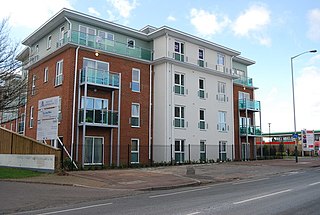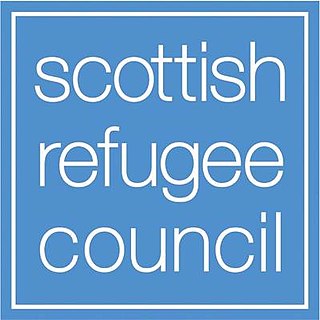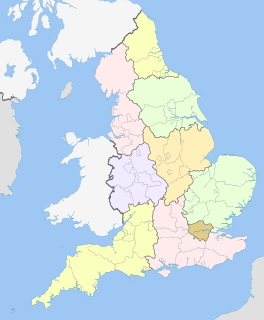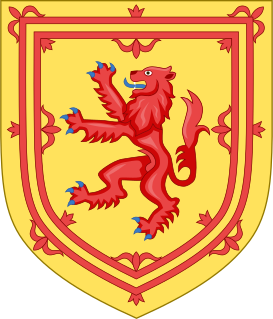
In Ireland and the United Kingdom, housing associations are private, non-profit making organisations that provide low-cost "social housing" for people in need of a home. Any budget surplus is used to maintain existing housing and to help finance new homes and it cannot be used for personal benefit of directors or shareholders. Although independent, they are regulated by the state and commonly receive public funding. They are now the United Kingdom's major providers of new housing for rent, while many also run shared ownership schemes to help those who cannot afford to buy a home outright.

The Diana, Princess of Wales Memorial Fund was an independent grant-giving foundation established in September 1997 after the death of Diana, Princess of Wales, to continue her humanitarian work in the United Kingdom and overseas. It was a registered charity under English law. The Fund closed at the end of 2012.

The Scottish Refugee Council is a registered charity that provides advice and services to asylum seekers and refugees. The objective of the organisation is ‘building a better future with refugees in Scotland’.
Migrant Help is a United Kingdom-based national charity that has been supporting migrant since 1963.

In the United Kingdom, regional development agencies (RDAs) were nine non-departmental public bodies established for the purpose of development, primarily economic, of England's Government Office regions between 1998 and 2010. There was one RDA for each of the NUTS level 1 regions of England. Similar activities were carried out in Wales by the Welsh Government Department of Economy and Transport, in Northern Ireland by the Department of Enterprise, Trade and Investment and in Scotland by Scottish Enterprise and Highlands and Islands Enterprise.

The Refugee Council is a UK based organisation which works with refugees and asylum seekers. The organisation provides support and advice to refugees and asylum seekers, as well as support for other refugee and asylum seeker organisations. The Refugee Council also produces many reports and educational material relating to refugee issues, and lobbies politicians and the media on these issues. The Council works in partnership with many other refugee organisations, including the British Red Cross, Scottish Refugee Council, Welsh Refugee Council, North of England Refugee Service, Northern Refugee Centre, and Refugee Action.

The Convention of Scottish Local Authorities (COSLA) is the national association of Scottish councils and acts as an employers' association for its 32 member authorities.
The regional arts boards were English regional subdivisions of the Arts Council of Great Britain

Emergency medical services in the United Kingdom provide emergency care to people with acute illness or injury and are predominantly provided free at the point of use by the four National Health Services (NHS) of England, Scotland, Wales, and Northern Ireland. Emergency care including ambulance and emergency department treatment is only free to UK residents and a charge may be made to those not entitled to free NHS care.

Refugee Action is an independent national charity founded in 1981 that provides advice and support to refugees and asylum seekers in the UK and campaigns for a fairer asylum system. It is governed by a board of trustees chaired by Penny Lawrence. Its chief executive is Stephen Hale OBE who joined the charity in February 2014.
British Afghans are British citizens and non-citizen residents born in or with ancestors from, Afghanistan, part of worldwide Afghan diaspora. The Office for National Statistics (ONS) estimates that there were 79,000 people born in Afghanistan living in the UK in 2019.
Examination boards in the United Kingdom are the examination boards responsible for setting and awarding secondary education level qualifications, such as GCSEs, Standard Grades, A Levels, Highers and vocational qualifications, to students in the United Kingdom.
The Welsh Refugee Council is a sister organisation to the Refugee Council and Scottish Refugee Council, and works to help asylum seekers and refugees in Wales.
The Gateway Protection Programme was a refugee resettlement scheme operated by the Government of the United Kingdom in partnership with the United Nations High Commissioner for Refugees (UNHCR) and co-funded by the European Union (EU), offering a legal route for a quota of UNHCR-identified refugees to be resettled in the UK. Following a proposal by the British Home Secretary, David Blunkett, in October 2001, the legal basis was established by the Nationality, Immigration and Asylum Act 2002 and the programme itself launched in March 2004. The programme enjoyed broad support from the UK's main political parties.

In the United Kingdom, devolution is the Parliament of the United Kingdom's statutory granting of a greater level of self-government to the Scottish Parliament, the Senedd, the Northern Ireland Assembly and the London Assembly and to their associated executive bodies the Scottish Government, the Welsh Government, the Northern Ireland Executive and in England, the Greater London Authority and combined authorities.
Unaccompanied asylum-seeking children in the United Kingdom, often abbreviated to UASC, are children who are outside their country of origin to seek asylum in the United Kingdom, are separated from parents and relatives, and are not in the care of someone who is responsible for doing so.

The North of England Refugee Service (NERS) is an independent and charitable organisation which exists to meet the needs and represent the interests of asylum seekers and refugees who have arrived or have settled in the North East of England.









